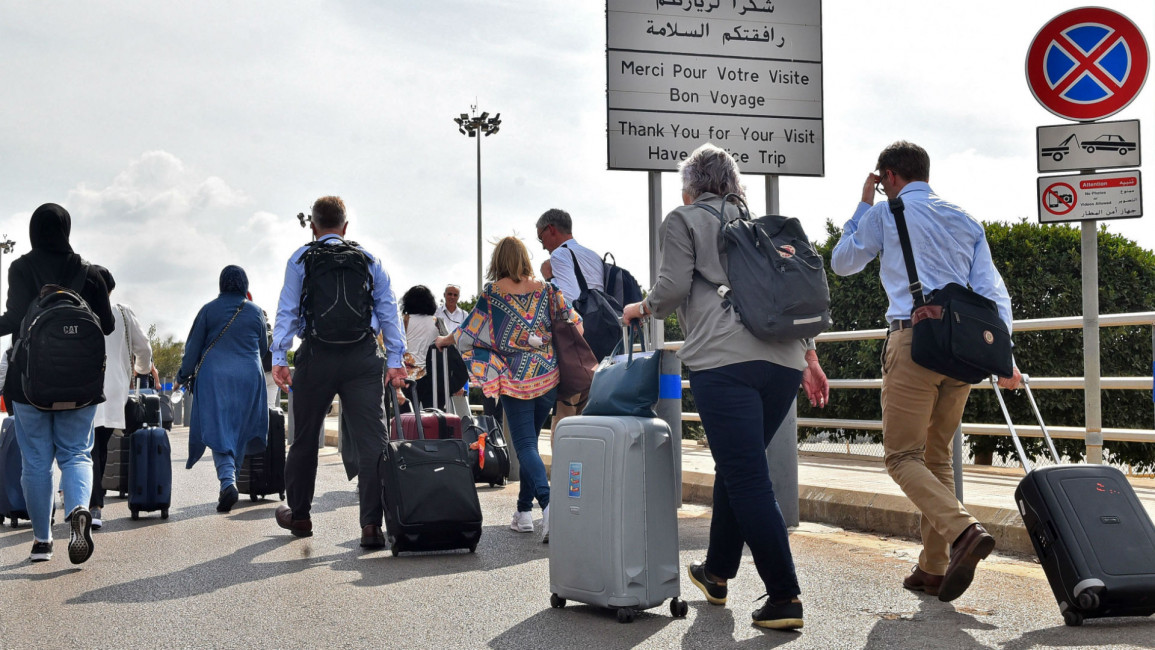Arab states issue Lebanon travel advisory, warnings amid escalating anti-government protests
Several countries have issued updated travel advice to their citizens travelling to Lebanon amid widespread anti-government protests.
Public anger over austerity measures boiled over on Thursday over plans to tax calls on messaging platforms like Whatsapp. Despite the unpopular proposal being axed, protests continued and spread.
Kuwait's embassy in Lebanon on Friday urged citizens of the Gulf state to hold off on travel to Lebanon via Twitter.
"The embassy also calls on citizens currently in Lebanon to take utmost care and stay away from crowds and demonstrations," the embassy said in a tweet.
Egypt, Saudi Arabia and the United Arab Emirates, meanwhile, advised their citizens already in Lebanon to stay away from demonstrations and avoid crowded areas.
“The embassy calls on all Egyptian citizens in Lebanon to avoid the areas of gatherings and protests, to be careful in their movements and to abide by the instructions of the Lebanese authorities in this regard,” Egypt's official MENA news agency said on Friday.
|
||
Lebanon's protests follow wildfires which tore through large parts of the Lebanese countryside earlier this week, destroying homes and hundreds of acres of forest. The government was unable to respond properly due to the lack of firefighting infrastructure, leading to accusations of neglect and widespread public outrage.
Read more: Lebanon Rises: Second wave of Arab Spring protests arrive in Beirut
The anger spilled over on Thursday, when Information Minister Jamal Jarrah had announced a 20 cent daily fee for users who made calls on apps such as Whatsapp and Viber, telling reporters it could bring in $200 million.
Economic growth has plummeted in Lebanon as a result of a repeated political deadlock in recent years, and was compounded by the impact the war in neighbouring Syria that has dragged on for the last six years.
Lebanon’s debt stands at around $86 million, according to the finance ministry, higher than 150 percent of GDP.
According to data from regional research group Arab Barometer, 91 percent of Lebanon's citizens believe corruption has significantly affected public institutions, with only 27 percent saying that the country's government is working to tackle the issue.
Follow us on Twitter: @The_NewArab



